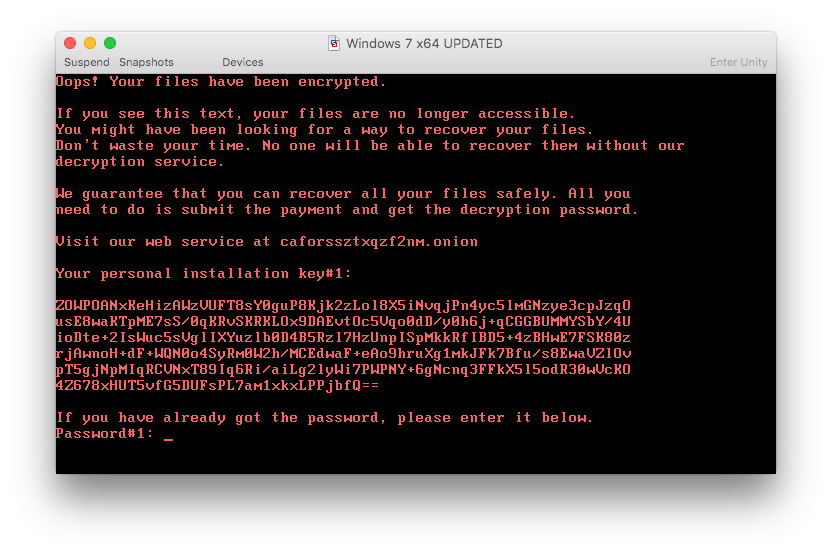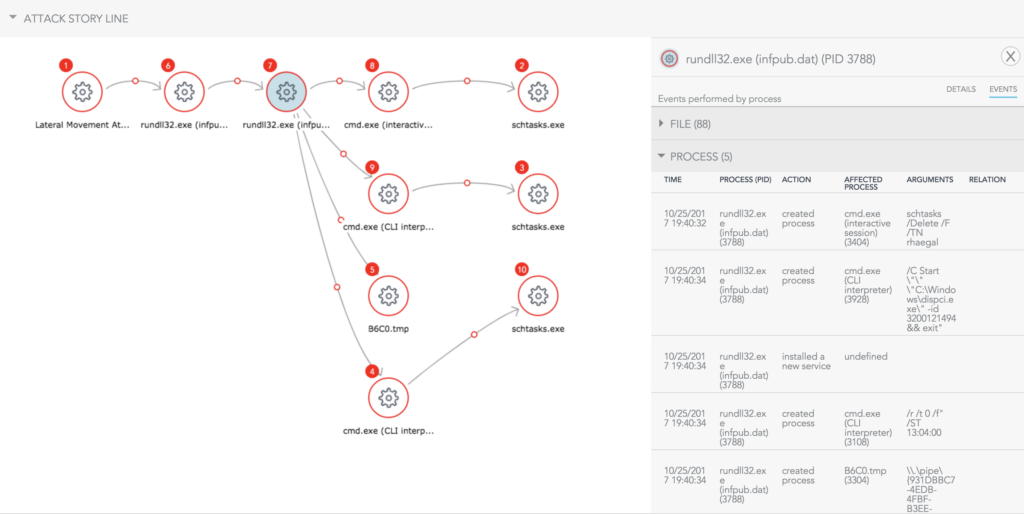It’s been almost exactly four months since the last Petya ransomware outbreak. On October 24th, a new variant of Petya called Bad Rabbit was discovered attacking consumers and organizations, mostly in Russia. Below is a copy of the ransom note, which is similar to Petya’s ransom note:

SentinelOne customers are protected from this threat. Below is a video showing the detection:
Operation
The malware is distributed by drive-by downloads. It’s icon appears is an Adobe Flash installer.
Once it’s running, it looks for and encrypts files with the following file extensions:
.3ds .7z .accdb .ai .asm .asp .aspx .avhd .back .bak .bmp .brw .c .cab .cc .cer .cfg .conf .cpp .crt .cs .ctl .cxx .dbf .der .dib .disk .djvu .doc .docx .dwg .eml .fdb .gz .h .hdd .hpp .hxx .iso .java .jfif .jpe .jpeg .jpg .js .kdbx .key .mail .mdb .msg .nrg .odc .odf .odg .odi .odm .odp .ods .odt .ora .ost .ova .ovf .p12 .p7b .p7c .pdf .pem .pfx .php .pmf .png .ppt .pptx .ps1 .pst .pvi .py .pyc .pyw .qcow .qcow2 .rar .rb .rtf .scm .sln .sql .tar .tib .tif .tiff .vb .vbox .vbs .vcb .vdi .vfd .vhd .vhdx .vmc .vmdk .vmsd .vmtm .vmx .vsdx .vsv .work .xls .xlsx .xml .xvd .zip
Additionally, Bad Rabbit tries to spread itself. It uses Mimikatz to dump credentials and uses them along with hard coded. Then it tries to spread using the following protocols:
- SVCCTL
- SMB2 / SMB
- NTLMSSP
The hard coded usernames are:
Admin, Administrator, alex, asus, backup, boss, buh, ftp, ftpadmin, ftpuser, Guest, manager, nas, nasadmin, nasuser, netguest, operator, other user, rdp, rdpadmin, rdpuser, root,superuser, support, Test, User, User1, user-1, work
The hard coded passwords are:
111111, 123, 123321, 1234, 12345, 123456, 1234567, 12345678,123456789, 1234567890, 321, 55555, 777, 77777, Admin, Admin123, admin123Test123, Administrator, administrator, Administrator123, administrator123, adminTest, god, Guest, guest, Guest123, guest123, love, password, qwe, qwe123, qwe321, qwer, qwert, qwerty, qwerty123, root, secret, sex, test, test123, uiop, User, user, User132, user123, zxc, zxc123, zxc321,zxcv
Lateral Movement Detection
The video below shows us detecting the malware as it attempts to spread from an unprotected, infected host (right, red background) to a protected machine (left, black background).
SentinelOne also constructs an attack storyline for the lateral movement for incident response reports and forensics:
Sample Hashes
- Primary SHA256: 630325cac09ac3fab908f903e3b00d0dadd5fdaa0875ed8496fcbb97a558d0da
- Payload SHA256: 8ebc97e05c8e1073bda2efb6f4d00ad7e789260afa2c276f0c72740b838a0a93


